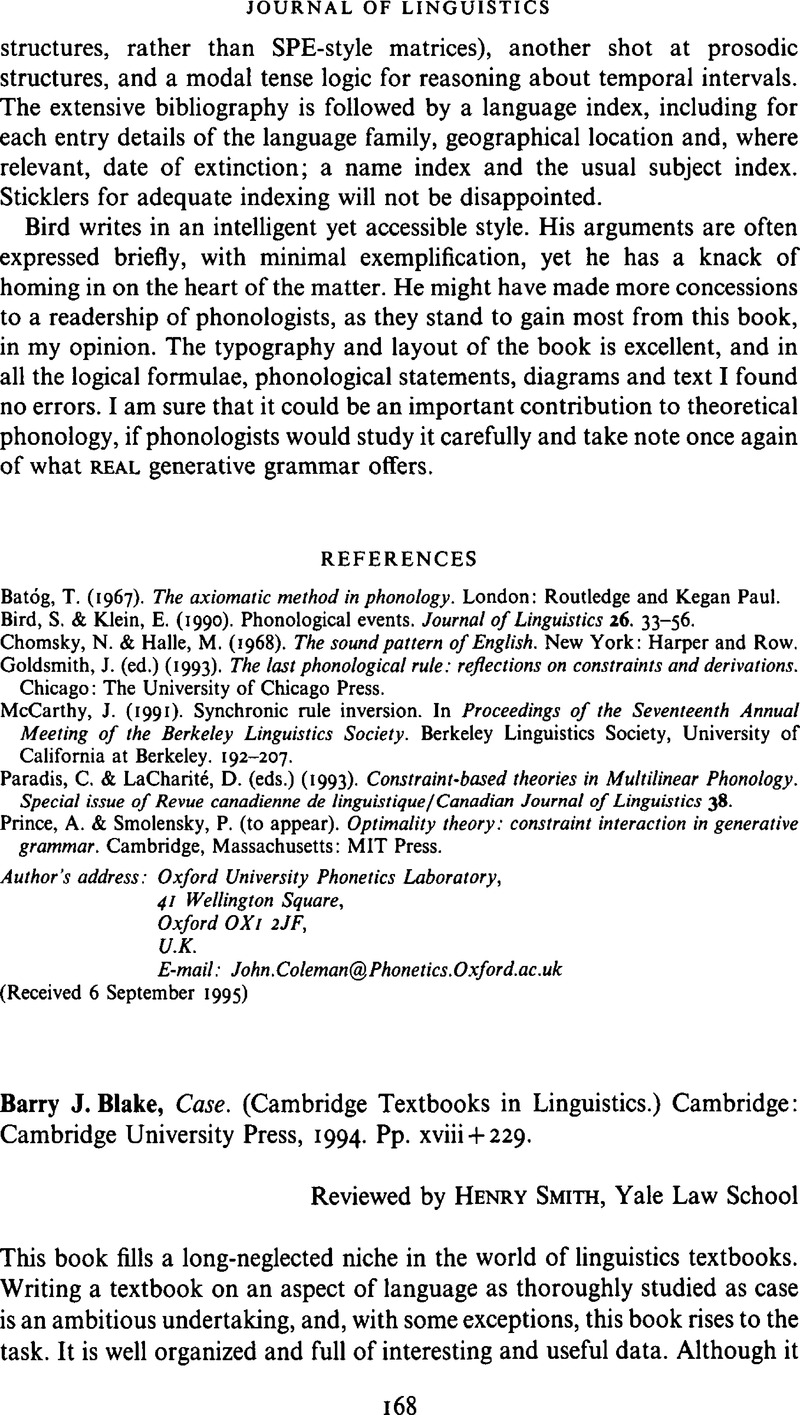No CrossRef data available.
Article contents
Barry J. Blake, Case. (Cambridge Textbooks in Linguistics.) Cambridge: Cambridge University Press, 1994. Pp. xviii+229.
Published online by Cambridge University Press: 28 November 2008
Abstract
An abstract is not available for this content so a preview has been provided. Please use the Get access link above for information on how to access this content.

- Type
- Reviews
- Information
- Copyright
- Copyright © Cambridge University Press 1996
References
Anderson, S. R. (1977). On mechanisms by which languages become ergative. In Li, C. (ed.) Mechanisms of syntactic change. Austin: University of Texas Press. 317–364.CrossRefGoogle Scholar
Dowty, D. (1991). Thematic proto-roles and argument selection. Language 67. 547–619.CrossRefGoogle Scholar
Hale, K. L. (1982). Some essential features of Warlpiri verbal clauses. Work Papers of Summer Institute of Linguistics – Australian Aborigines Branch. A6. 217–315.Google Scholar
Keenan, E. L. (1976). Towards a universal definition of ‘subject’. In Li, C. (ed.) Subject and topic. New York: Academic Press. 303–334.Google Scholar
Maling, J. & Zaenen, A. (eds.) (1990). Syntax and semantics 24: Modern Icelandic syntax. San Diego: Academic Press.CrossRefGoogle Scholar
Smyth, H. W. (1956). Greek grammar. (Revised by Gordon Messing.) Cambridge, MA: Harvard University Press.Google Scholar




